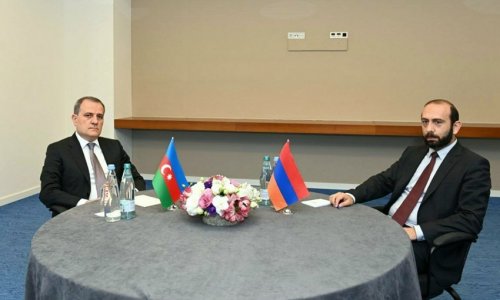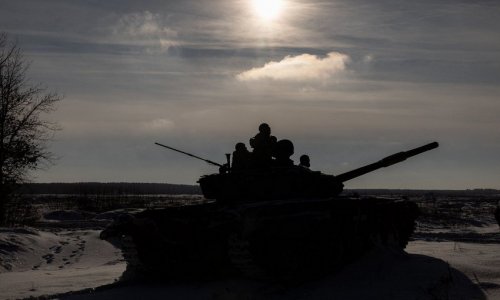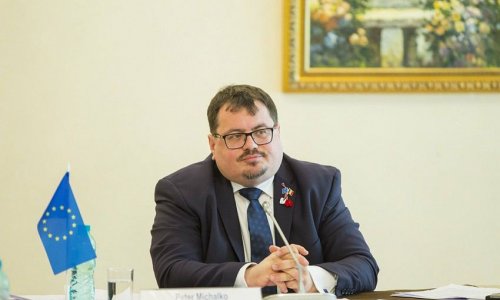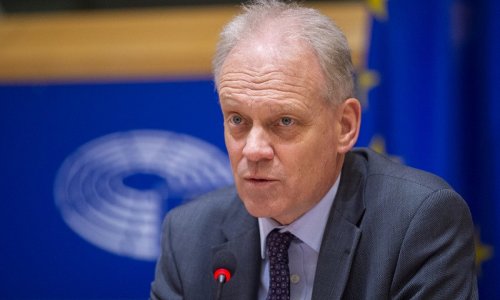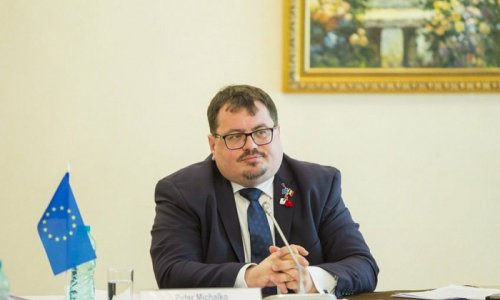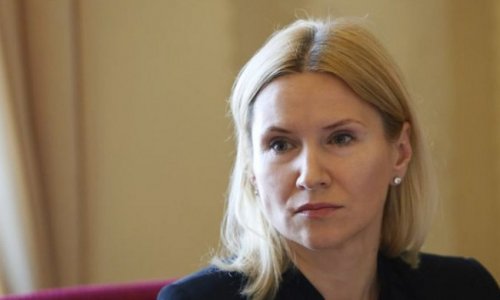By Brenda Shaffer
In early May, the Obama administration will announce a new effort to resolve the Nagorno-Karabakh conflict between Armenia and Azerbaijan. This isn’t the first such effort, and it likely won’t be the last. But in the wake of Russia’s annexation of Crimea, the United States seems more intent than ever on resolving the long-standing dispute, which Moscow has fanned to maintain its influence in the region.
The conflict between Armenia and Azerbaijan started on the eve of the Soviet breakup, as ethnic Armenians in Azerbaijan’s province of Nagorno-Karabakh rallied to join Armenia. Moscow armed both sides and played them against each other, turning a local dispute over the status of a territory inhabited by 90,000 people into a regional war. For close to six years, the newly independent states of Armenia and Azerbaijan fought over the territory, leaving 30,000 dead and creating around a million new refugees. Eventually, Armenia was victorious, and it took control of Nagorno-Karabakh and seven other Azerbaijani districts.
The end of the fighting, though, didn’t bring an end to the conflict. Both sides have regularly breached the cease-fire that was brokered in 1994, and deadly skirmishes erupt on a weekly basis. Through it all, Moscow has encouraged the fighting, at times revealing information to Armenia and selling arms to both sides. In addition, Russia has thousands of troops stationed in Armenia, it runs the country’s air defenses, and it controls key elements of its economy and infrastructure. As long as Moscow backs Yerevan, Baku can do little to make peace with its neighbor.
For its part, Moscow views the volatile status quo as a way to keep the South Caucasus under its control. For one, the unresolved conflict guarantees that Armenia will not ask Russian forces to leave. And as long as Russia has troops on the ground, it can pressure Armenia to stay away from the West. In the fall, Russian President Vladimir Putin called Armenian President Serzh Sargsyan to Moscow. Immediately thereafter, Sargsyan announced Armenia’s withdrawal from the European Union’s Eastern Partnership and stated its intention to instead join Moscow’s Customs Union.
For decades, Washington has tried to resolve the Nagorno-Karabakh conflict through the Organization for Security and Cooperation in Europe’s Minsk Group, which is co-chaired by the United States, Russia, and France. But the effort hasn’t met with much success. In part, that is because Armenian and Azerbaijani positions have hardened in recent years. In the past, Armenia was adamant about retaining control over Nagorno-Karabakh but viewed the remaining Azerbaijani territories it controlled as bargaining chips for peace. Today, however, Armenia’s leaders reject even minor territorial compromises. In turn, Azerbaijan no longer trusts the international community to implement its resolutions and legal statements and has turned to building up its military power to coerce Armenia to leave the occupied territories. It is fair to say that Russian meddling is, to some extent, responsible for these hardened positions.
More fundamentally, peace efforts have failed because the United States has treated Armenia and Azerbaijan as the primary protagonists in the dispute while ignoring Russia’s role in prolonging the conflict. For example, successive U.S. secretaries of state and special negotiators have criticized the presidents of Armenia and Azerbaijan for “not preparing their people for peace,” as the leaders of the Minsk Group chided last year, and for failing to reach an agreement. They have invested millions of dollars in building ties between the two societies, but have never formed a strategy for dealing with Moscow because, until Crimea, Washington never acknowledged the extent to which Moscow uses ethnic conflicts around the region as a lever of influence.
Now that Russia is in the West’s doghouse for other reasons, though, there is no reason to soft-pedal the issue. Russia has proved ready to use military force (as it has in Ukraine and Georgia) and to use electoral processes and civil society organizations (it has supported Russian citizens in recent elections in Azerbaijan, Georgia, and Latvia) to get its way. And the West must counter.
But can the upcoming talks work? Some factors are favorable. A number of neighboring powers seem to support a settlement. Turkish Prime Minister Recep Tayyip Erdogan’s recent statement on the suffering of Armenians in the Ottoman Empire during World War I may be a hint toward a larger Turkish initiative to develop relations with Armenia. Iran, which in the past has supported Armenia in the conflict, is so bogged down by its own economic chaos that it appears uninterested in actively undermining a settlement. Further, in December, Azerbaijan launched the $45 billion Southern Corridor pipeline project to bring natural gas from the South Caucasus to Europe. Azerbaijan, Europe, and the investing companies are eager to prevent any conflict, which would derail the development of this important project.
Other factors might be less favorable. Putin is riding his recent success in Crimea and is not likely in the mood for compromise. Some in the Obama administration counter that Putin wants to smooth over Russia’s relations with the West and that compromising on the South Caucasus would be an easy way to do so. But that seems like wishful thinking.
Consequently, after it announces its plans to restart talks on Nagorno-Karabakh, the United States must stop blaming the leaders of Armenia and Azerbaijan for the dispute and start thinking about how to win Russian support for peace, for example, by identifying Russian interests that could be served through resolution. The United States could quietly agree that it would not seek NATO membership for any additional countries bordering Russia in return for good Russian behavior, or commit that it would not seek removal of Russian troops from Armenia as part of the peace agreement. Successive U.S. administrations, whether Republican or Democrat, have been loath to bargain with Russia on such strategic issues. They have preferred instead to operate on principles (“state sovereignty,” “inapplicability of use of force,” “democracy promotion”). That has to stop. Russia has proved itself uninterested in shared values.
Meanwhile, the United States should also support Ankara’s policy, which it first raised in 2009, of linking the opening of the border between Armenia and Turkey to the advancement of the Nagorno-Karabakh peace process. Increased trade between Armenia and Turkey would be a positive development that could help free Yerevan from its dependence on Moscow. But such trade can only be granted if Armenia withdraws from a significant portion of the occupied territories.
It is a positive sign that the Obama administration is attempting to resolve this conflict. It indicates that the administration understands the need to prevent future Crimeas in the former Soviet republics. For the effort to be more than a photo opportunity, however, Washington will have to get serious about Russia. Tens of thousands of people have died in the Caucasus, and over a million have been uprooted. This conflict has provided Russia with significant influence in the region. Reversing that must be the main goal.
Bakudaily.az


